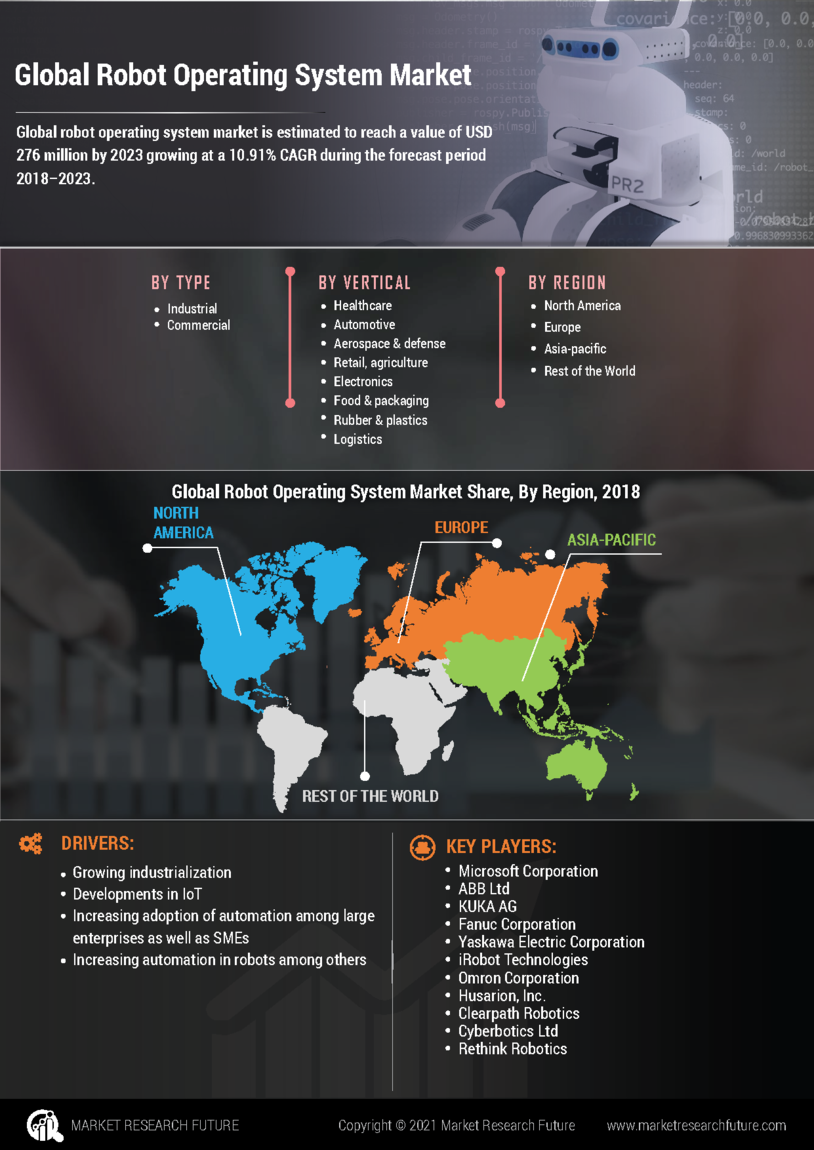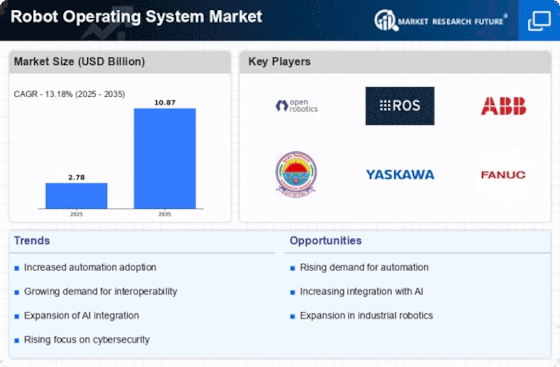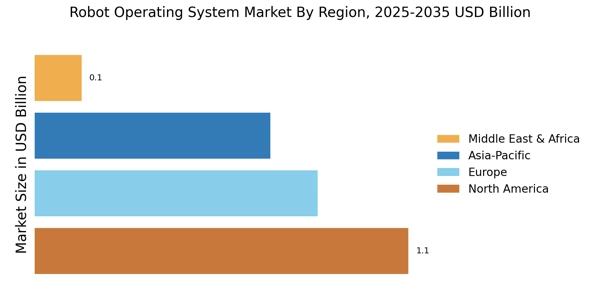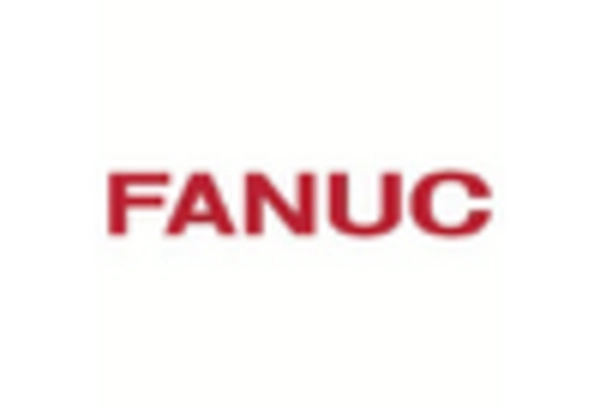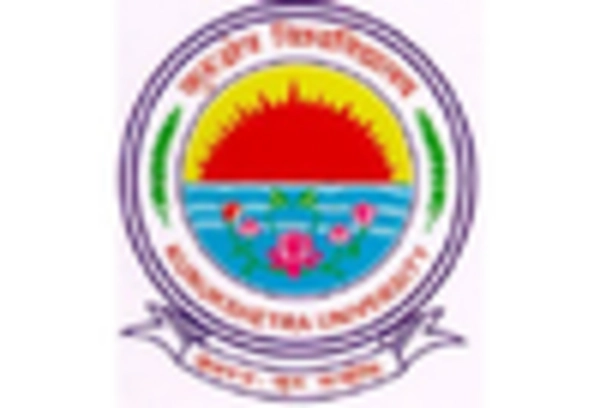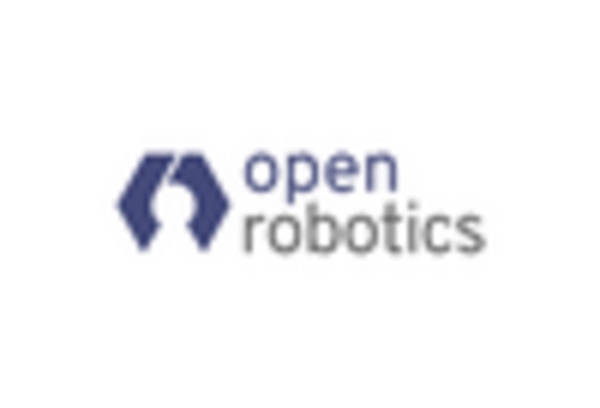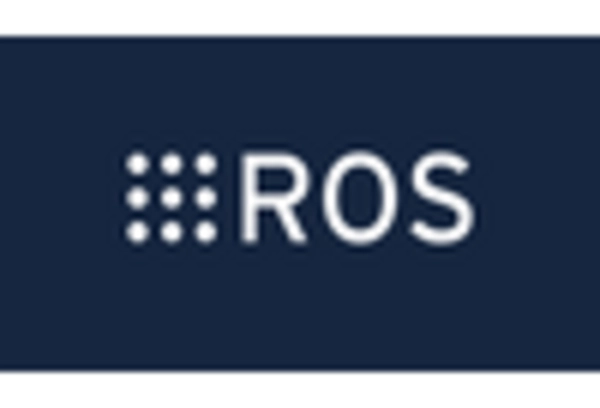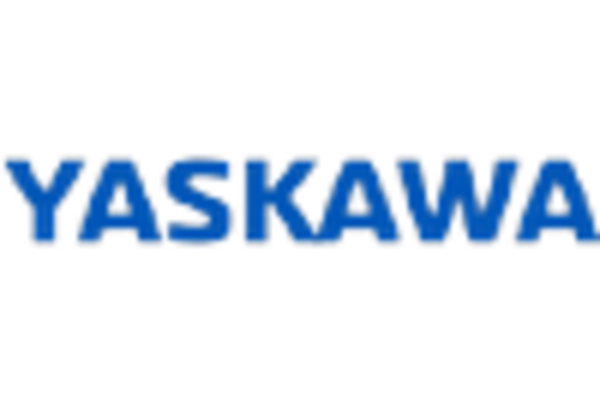Increased Demand for Automation
The Robot Operating System Market experiences a notable surge in demand for automation across various sectors. Industries such as manufacturing, logistics, and healthcare are increasingly adopting robotic solutions to enhance efficiency and reduce operational costs. According to recent data, the automation market is projected to grow at a compound annual growth rate of approximately 10% over the next five years. This trend indicates a strong inclination towards integrating robotic systems, which rely heavily on advanced operating systems to function effectively. As businesses seek to streamline processes and improve productivity, the Robot Operating System Market is likely to benefit significantly from this growing demand for automation.
Rising Adoption of Service Robots
The adoption of service robots is on the rise, contributing to the expansion of the Robot Operating System Market. Service robots are increasingly utilized in sectors such as hospitality, healthcare, and retail, where they assist in tasks ranging from customer service to inventory management. The market for service robots is expected to grow at a rate of approximately 15% annually, driven by the need for enhanced customer experiences and operational efficiency. As service robots become more prevalent, the demand for robust operating systems that can support their functionalities will likely increase, thereby benefiting the Robot Operating System Market.
Advancements in Robotics Technology
Technological advancements play a crucial role in shaping the Robot Operating System Market. Innovations in sensor technology, machine learning, and artificial intelligence are driving the development of more sophisticated robotic systems. These advancements enable robots to perform complex tasks with greater precision and reliability. For instance, the integration of AI algorithms allows robots to learn from their environments and adapt to changing conditions. As a result, the market for robotic operating systems is expected to expand, with an estimated growth rate of around 12% annually. This evolution in robotics technology not only enhances the capabilities of robots but also broadens their applications across diverse industries.
Regulatory Support and Standardization
Regulatory support and standardization are emerging as key drivers in the Robot Operating System Market. Governments and international organizations are recognizing the importance of establishing guidelines and standards for robotic technologies to ensure safety and interoperability. This regulatory framework is expected to facilitate the adoption of robotic systems across various sectors, as businesses seek compliance with safety standards. The establishment of clear regulations may also encourage investment in robotic technologies, as companies gain confidence in the market's stability. Consequently, the Robot Operating System Market is likely to experience growth as regulatory support fosters a conducive environment for innovation and deployment.
Growing Investment in Research and Development
Investment in research and development is a significant driver of the Robot Operating System Market. Companies and governments are increasingly allocating resources to explore innovative robotic solutions and improve existing technologies. This trend is evident in the rising number of research initiatives and collaborations between academic institutions and industry players. The global investment in robotics R&D is projected to reach billions of dollars in the coming years, fostering advancements in robotic operating systems. Such investments are likely to lead to the emergence of new applications and functionalities, further propelling the growth of the Robot Operating System Market.
